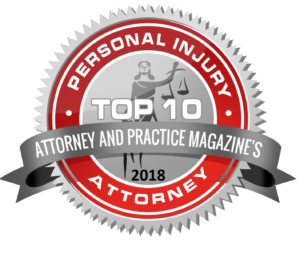In Virginia, understanding self-defense laws is important for anyone looking to protect themselves or their loved ones. While it’s a fundamental right to defend yourself in certain situations, these laws can sometimes be complex. Virginia has specific rules about when and how someone can claim self-defense. Knowing these rules can help you understand your rights and responsibilities if you ever face a situation where you need to protect yourself or others. This guide explains what self-defense is, when it is permitted in Virginia, the legal limits on using force, and what you should do if you are involved in a self-defense case. At, NovaLegalGroup, P.C, we are here to guide you through the legal process and help you navigate the complexities of your case.

Understanding Self-Defense in Virginia
Self-defense means that a person uses force to protect themselves from harm. In Virginia, self-defense can only be claimed if the person genuinely believes that they or someone else is in immediate danger. This belief must be reasonable, meaning that a typical person in the same situation would feel threatened too. Self-defense is only allowed if there is an immediate need to protect oneself. For instance, if someone tries to hurt you physically or threatens you with a weapon, using force to defend yourself may be allowed under Virginia’s self-defense laws. However, you must not use more force than is needed to protect yourself. The force used should match the threat you face, meaning you cannot respond to a minor threat with extreme or deadly force.
When Self-Defense Is Allowed
In Virginia, a person may only use force when it is absolutely necessary. If someone feels threatened but has a chance to get away safely, Virginia law often requires them to take that option instead of resorting to violence. This is especially important if someone is outside their home. Virginia law believes that avoiding conflict, if possible, is always better. If there is no choice but to use force, it is usually seen as a last resort. However, in your own home, the rules can be different. You may not need to retreat or avoid the person if you are in your house, and self-defense might be permitted without the requirement to leave. The law recognizes that a person should feel safe and protected within their own home.
Deadly Force and Its Limits
Deadly force is force that can cause serious harm or death, like using a weapon. In Virginia, deadly force should only be used when absolutely necessary. The law states that deadly force can only be used if there is a real and immediate threat of serious harm. If someone is facing a life-threatening attack, using deadly force may be seen as a justified action. However, if the situation is less serious, using deadly force could lead to criminal charges. It’s important to remember that Virginia law does not favor using deadly force except in extreme situations where there is no other way to stay safe. The force used should be enough to protect, not punish.
Self-Defense in Public vs. At Home
Virginia’s self-defense laws make distinctions between defending oneself in public and at home. Outside the home, the law usually expects you to avoid or retreat from danger if possible before using force. The idea is to try to reduce violence whenever possible. However, if there is no way to safely escape, then self-defense may be permitted. In contrast, at home, Virginia law is more protective of your right to defend yourself. A person in their home is not required to retreat, meaning they do not have to try to get away if threatened. This is known as the “Castle Doctrine,” which refers to the belief that your home is your castle, and you have a right to defend it. But even at home, the force used must still be reasonable for the situation.
Defense of Others in Virginia
Virginia law also allows someone to defend others under certain circumstances. This means that if you see another person being threatened with harm, you may have the right to step in and help protect them. However, just as with defending oneself, you must use only the force needed to stop the threat. If a person acts to protect someone else, their actions are judged by the same standards as if they were protecting themselves. The threat must be real, immediate, and severe enough to justify the amount of force used. For example, if a family member or friend is in danger of being attacked, stepping in to stop the attacker may be considered self-defense. However, it’s important to remember that the threat must be serious and immediate for it to be a legal defense of others.
Duty to Retreat in Virginia
Virginia’s self-defense laws follow the rule of “duty to retreat” in most public situations, meaning that if it’s safe to avoid the threat, you should try to do so. This is different from some other states that follow a “stand your ground” rule, where there’s no requirement to retreat before defending oneself. In Virginia, if a person can walk away without getting hurt, they are expected to do so. This is to prevent unnecessary conflict. However, as mentioned earlier, there is usually no duty to retreat if you are in your own home. If someone enters your home and threatens you, you may not need to escape and can use force to protect yourself or others inside. This is important to know if you ever face a threatening situation in your home.
Proving Self-Defense in Court
If a self-defense case goes to court, the person who claims self-defense must show that their actions were necessary and reasonable. This often means providing evidence, like witness statements or proof of injuries, to show that they acted to protect themselves or others. The court will look at several things to decide if the actions were justified. They will consider the danger level, whether there was a chance to escape, and whether the person used only the necessary amount of force. The person claiming self-defense must show that their belief in the threat was reasonable and immediate. Any evidence that shows the attacker posed a genuine risk of harm can support a self-defense claim in court.
Choosing a Criminal Defense Attorney Bailing Someone Out of JailRelated Videos
Common Misunderstandings About Self-Defense
Many people misunderstand self-defense laws, thinking they have more freedom to use force than the law allows. One common misunderstanding is that a person can use deadly force whenever they feel scared, but this is not true. Virginia law requires the threat to be serious, immediate, and unavoidable for deadly force to be justified. Another misunderstanding is that self-defense gives full protection from all legal consequences. Even if a person uses force in self-defense, they may still face questions from law enforcement. A self-defense claim can help explain the actions, but it does not always remove legal responsibility. Finally, some think they can defend property with force, but in Virginia, self-defense is mostly for personal safety, not for protecting property alone.
What To Do if You Are in a Self-Defense Situation
If you find yourself in a self-defense situation, there are several steps you can take to protect yourself legally. First, if possible, call law enforcement right away. Reporting the incident can show that you acted responsibly. Be honest and calm when explaining what happened, but avoid discussing too many details before speaking with a lawyer. Collect any evidence that shows what occurred, such as photos of injuries or damage. If there were witnesses, get their contact information. This information can be helpful if the case goes to court. Finally, consulting a lawyer is essential, as self-defense cases can be complicated, and you may need professional advice on how to handle the legal process.
Why Knowing Self-Defense Laws is Important
Understanding Virginia’s self-defense laws helps you know your rights and responsibilities. If you know when and how you are allowed to defend yourself, you can make safer and more lawful choices. Virginia’s laws aim to balance the right to protect oneself with the importance of reducing violence. By understanding these rules, you can avoid using more force than necessary and can act within the law. Self-defense situations can be frightening, but knowing the rules in advance can help you stay calm and confident if you need to protect yourself. It’s always wise to know your legal rights so you can stay safe and law-abiding.
If you or someone you know has been involved in a self-defense situation, understanding Virginia’s self-defense laws can make a difference. Having professional legal guidance is key in navigating these matters. NovaLegalGroup, P.C. is here to provide support and assistance with any questions or concerns regarding self-defense claims. Our team is committed to helping you understand your rights and will work with you every step of the way. Contact NovaLegalGroup, P.C. today to ensure you are protected and informed about your legal options in a self-defense case.










